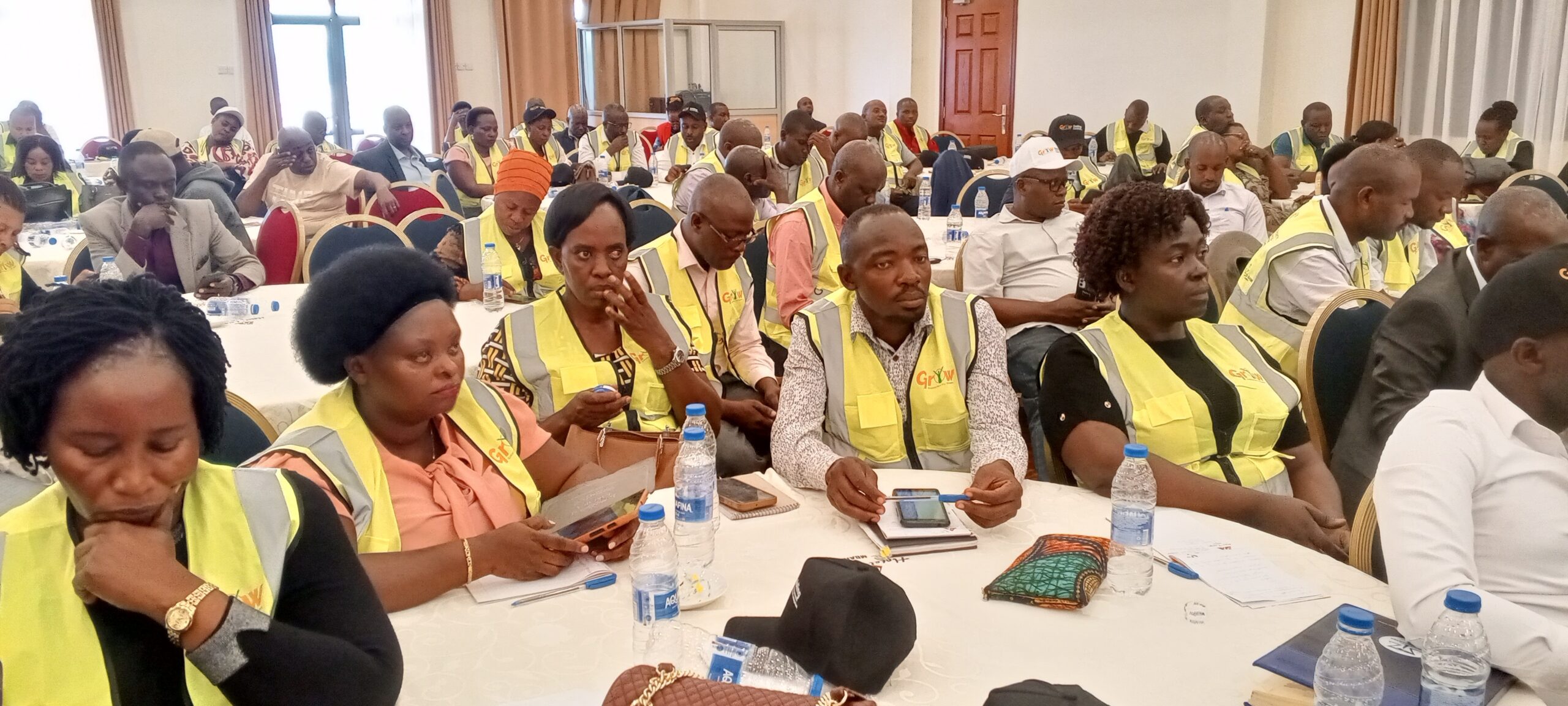MBARARA CITY, September 2, 2025 – The Ministry of Gender, Labour, and Social Development [MoGLSD] has engaged stakeholders from Western Uganda to address challenges affecting the ongoing implementation of the Generating Recovery and Wealth for Women [GROW] project.
The two-day stakeholder meeting, held recently at Hotel Triangle in Mbarara City, focused on improving project efficiency to empower women entrepreneurs and enhance the growth of their businesses.
Focal persons raised several concerns hindering the project’s rollout, including high interest rates, lack of transport for implementers, collateral-related challenges faced by women, and limited funds.
“Since we started this project, we have repeatedly asked how to access information from the banks, but they are bound by confidentiality rules. A GROW loan is like any other loan—except for a lower interest rate and a few additional features,” said Benon Mugume, Senior Probation and Labour Officer for Ntungamo District.
“We cannot access beneficiaries’ bank statements due to security concerns,” he added, urging MoGLSD to revise the legal framework to allow focal persons to access this data for monitoring and oversight.
Grievance mechanisms and oversight
Addressing participants, Jackline Tumwebaze, Regional Project Officer at MoGLSD, acknowledged the challenges and called on higher authorities and partner institutions to address them.
“Some of these issues require intervention at a higher level. Since we have many partners in this project, they must be brought into discussions to ensure the project achieves its intended goals,” she said.
Tumwebaze stressed that the meeting served as a vital platform for addressing complaints—such as gender-based violence [GBV], fraud, corruption, and mismanagement—through the project’s grievance redress mechanisms.
“While empowering women, we are solving one problem but sometimes creating others. The World Bank has a strong grievance mechanism to receive and address complaints from the community,” she said.
She noted that focal point officers have been trained and provided with logbooks and referral tools to document complaints. Cases unresolved at the local level can be escalated to MoGLSD, the Private Sector Foundation Uganda [PSFU], or even to court.
“We have equipped our officers with grievance logbooks, receipt books, and referral books. They’ve also been trained on how to use the grievance redress mechanism and the institutional structures available to them,” she added.
About the GROW project
Tumwebaze explained that the GROW project is a demand-driven initiative aimed at supporting women already engaged in business, with annual turnover ranging from Shs 4 million to over Shs 100 million.
“The project supports women running micro-businesses [Shs 4–10 million], small businesses (UGX 10–50 million), and medium enterprises [Shs 100 million and above. Unlike other government programmes targeting the grassroots, GROW is for women already in business, helping them transition to higher levels,” she explained.
She reported that since its inception, the project has shown promising performance, with Shs 8 billion already repaid and being recycled to new beneficiaries. To date, 2,780 women across the country have received loans through six partner financial institutions, including Centenary Bank, Stanbic Bank, and DFCU. In Western Uganda alone, 695 women have accessed loans totalling Shs 14 billion.
Collective business models and financial literacy
Tumwebaze also highlighted the benefits of communal business models, which encourage peer learning among women entrepreneurs.
“The GROW project aligns with Uganda’s National Development Plan and Sustainable Development Goal 5. It has enabled over 80 percent of women in Uganda to engage in business, form entrepreneur platforms, and build networks. This improves business skills, financial literacy, and access to markets,” she noted.
She clarified that the project’s funding is released quarterly to financial institutions in tranches and appealed to commercial banks to ensure that only eligible women receive the funds, enabling recovery and access by more women.
“The loan is issued at a 10 percent annual interest rate, repayable over two years, through six financial institutions: Centenary Bank, Stanbic Bank, DFCU, PostBank, Finance Trust Bank, and Pride Microfinance,” she said.
Despite the promising results, Tumwebaze acknowledged the funding shortfall, pointing out that the total GROW budget is small compared to the over Shs 1 trillion that Parish Development Model [PDM] receives every financial year.
“Demand far exceeds the available funds, which is why only eligible women can benefit. The GROW project is limited in scope compared to other government programmes,” she stated.
Resolutions and recommendations
Tumwebaze announced that the government has provided operational funds and motorcycles to all city, municipal, and district focal point officers to support mobilisation efforts for the GROW project.
“Focal point officers are now well-equipped to carry out their responsibilities,” she said.
She further encouraged the World Bank and PSFU to strengthen monitoring of GROW fund disbursement and usage.
“Monitoring beneficiaries is the responsibility of PSFU and the World Bank, not the district focal officers. The Memorandum of Understanding is between PSFU and the World Bank. Banks, bound by confidentiality laws, cannot share client information,” she clarified.
Stakeholder feedback
Amon Mutabarura, Rwampara District Commercial Officer, commended the training for equipping them with skills to handle business-related challenges.
“Regardless of the source of funding, our work revolves around business. The training has empowered us to address issues related to the GROW project effectively,” he said.
The engagement was attended by 141 stakeholders from the Ankole and Kigezi sub-regions, including community development officers and commercial officers.
About GROW project
The over Shs 800 billion GROW project is a flagship government initiative aimed at supporting women entrepreneurs in scaling their businesses from micro to small and medium enterprises. It is structured around four key components:Women empowerment and enterprise development; Access to finance; Enabling infrastructure; Programme management
The project is funded by the World Bank and will run for five years, from 20 January 2023 to 31 December 2027.
https://thecooperator.news/cooperative-selected-to-benefit-from-grow-project-in-bunyoro/
Buy your copy of thecooperator magazine from one of our country-wide vending points or an e-copy on emag.thecooperator.news
